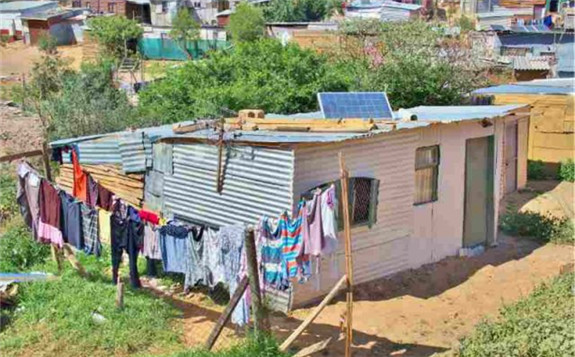New reports released by the United Nations (UN) provide recommendations on how the world can tackle energy poverty and ensure everyone in the world has access to clean and affordable electricity by 2030.

The UN has revealed key focus areas in need of immediate action by governments, energy sector players, financial institutions and other sectors to ensure the 759 million people currently living in energy poverty have access to clean and affordable electricity over the next nine years. The recommendations are part of a global roadmap the UN is developing to curb energy poverty whilst mitigating climate change.
The key areas include:
Finance and investment
To come up with recommendations on financing and investments required to improve energy access and reduce carbon emissions, the UN partnered with the European Investment Bank, the International Energy Agency, International Finance Corporation and United Nations Economic Commission for Africa. The parties have agreed that the world needs to triple its annual investments in clean energy to $5 trillion by 2030 to achieve 2030 and 2050 energy access and energy decarbonisation goals. Up to $35 billion per year would be required in electrification programmes alone to ensure the 759 million currently living in energy poverty have access to electricity, whilst $25 billion would help ensure 2.6 billion people have access to clean cooking by 2030.
To unlock the $5 trillion needed, the world will have to scale up the use of blended finance mechanisms and multilateral portfolio guarantees coupled with results-based financing, derisking instruments and commercial financing. Governments will need to remove regulations hindering the participation of private investments.
Co-Chair, Damilola Ogunbiyi, Special Representative of the UN Secretary-General on Sustainable Energy for All, said: “At the upcoming Ministerial Forums, we will see bold commitments put forward as Energy Compacts, as well as large financial commitments from partner institutions, and we need more of them, to ensure we leave no one behind and that we transition in a just and inclusive manner to net-zero by 2050.
“This is an opportunity of our lifetime to provide universal energy access by leveraging new partnerships and technologies, and funding innovations that can create a cleaner, brighter and more equitable economic future.”
Energy transition
The UN has urged governments and regions to align energy transition roadmaps with Sustainable Development Goals, as well as ensure all economic and social groups including low-income residents and the vulnerable are included in drafting these roadmaps. This would help ensure a just energy transition, which would encourage the participation of women in roles such as engineers, policymakers and entrepreneurs. A just energy transition can create 30 million new jobs in sustainable energy by 2030 and 42 million by 2050, according to the UN.
Recommendations to scale up the energy transition include:
Scaling up renewable energy capacity from 2,800GW today to 8,000GW by 2030.
Increasing energy efficiency savings from the current 0.8 to 3% by 2030.
100 countries should establish 100% renewable energy targets by 2025.
The removal of coal-based energy generation in the pipeline by 2025. The share of fossil fuels in the energy mix should fall from 60% today to 30% by 2030. Wealthier and OECD countries should phase out coal by 2030 and non-OECD countries by 2040 so that by 2050, 92% of power should come from renewables globally.
Scaling up innovation, technology and data
The UN is calling for an increase in funding for research and development of innovative technologies such as renewable energy capable of accelerating the energy transition and ensuring access to energy for those in poverty. The majority of the funding should be targetting less developed economies with global investments made in renewable energy capacity reaching around $300 billion in 2019, yet only 5% was invested in Africa, home to 82% of those living without energy access
The reports also acknowledge that many technologies for achieving the 2030 and 2050 goals exist but require innovations that accelerate and scale up their deployment. In addition, data systems need to be enhanced to better inform energy policies and direct investment decisions.
Sustainable Development Goals and Energy Access
The UN has called for the alignment of finance flows with the SDGs and of energy transition programmes with efforts to improve access to those in energy poverty.
Achim Steiner, Administrator of the UN Development Programme and Co-Chair of the High-level Dialogue, adds: “The energy revolution is underway, but 759 million people still live without electricity and the opportunities it provides.
“It is one of the most blatant examples of inequality in our world today. Affordable clean energy access for all is the foundation for achieving a global energy transition that is fast and fair.”